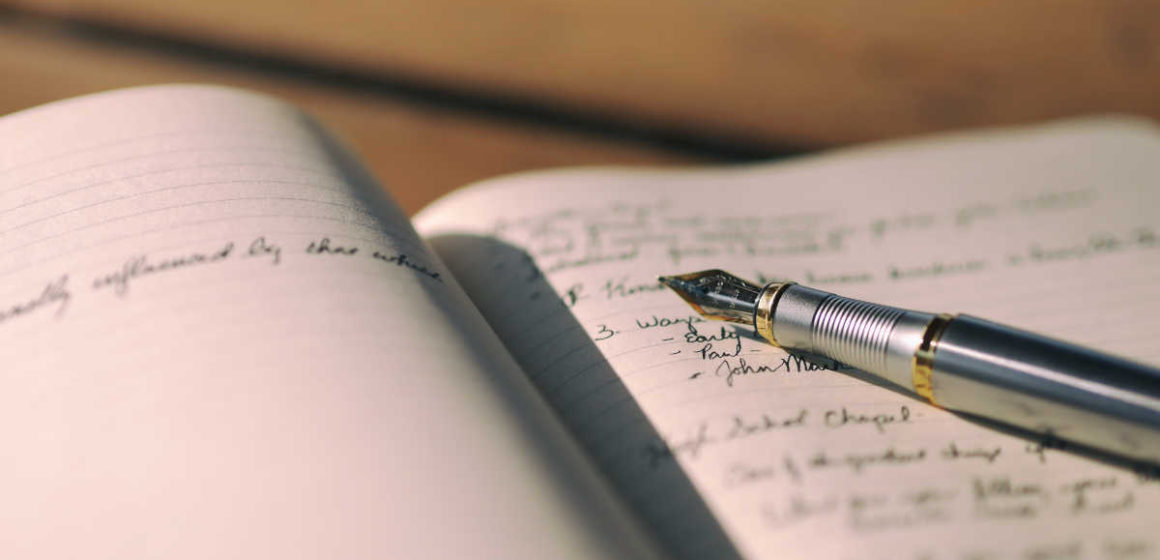The Healing Power Of Expressive Writing Through Journaling
Are you struggling with stress, anxiety, or sleepless nights? Recent research from the world of psychology reveals that expressive writing can be a powerful tool for managing these challenges.
Our blog post today dives into the healing power of expressive writing through journaling and offers practical tips to incorporate this self-help tool into your daily routine. Get ready to unleash your creativity and enhance your wellbeing!
Key Takeaways
- Expressive writing through journaling is a powerful tool for managing stress, anxiety, and sleepless nights.
- There are three main types of journaling: traditional journaling, bullet journaling, and expressive journaling.
- Expressive writing differs from other forms of journaling by focusing on emotional exploration and self-expression.
- It provides numerous benefits for mental health, including processing emotions, promoting self-reflection and self-awareness, and reducing stress and anxiety.
Types of Journaling
There are three main types of journaling: traditional journaling, bullet journaling, and expressive journaling.
Traditional journaling
Traditional journaling holds a significant place in the realm of self-help tools. It provides an opportunity to pen down thoughts, feelings, and life events in a systematic manner.
Driven by its simplicity and versatility, it remains popular among individuals across various age groups. This form of journaling can serve as an emotional outlet and promote mental wellbeing – proven by numerous studies such as those conducted by James W Pennebaker, PhD.
By putting experiences into words, traditional journaling helps people gain new perspectives on life situations while boosting their creativity. Moreover, it may also provide therapeutic support for those dealing with symptoms of anxiety or depression.
Bullet journaling
Bullet journaling flaunts flexibility as one of its robust strengths. Unlike traditional diary entries, bullet journals use symbols and short sentences to track tasks, appointments, personal goals and other aspects of daily life in a more structured manner.
This method is not only effective for time management but also enhances focus and attention.
This style of journaling borrows the concept of mindfulness by allowing you to live in the present moment while maintaining an awareness of where you’ve been and future plans. Just like expressive writing therapy exercises that are beneficial for therapeutic support, bullet journaling can help process emotions.
It has even proven useful for individuals struggling with mental health conditions such as depression and anxiety, according to new research findings.
Expressive journaling
Expressive journaling goes beyond simply recording daily events. It encourages the exploration and expression of deep emotions, feelings, and thoughts. This unique form of writing serves as a powerful tool for healing; research by James W Pennebaker, PhD suggests significant health improvements could stem from this practice.
Optimal benefits are seen when it is done in a private space without interruptions or prying eyes. One can choose to write freely or through guided prompts that provoke introspection and emotional exploration.
Destroying the writing after completing it can serve as a symbolic release of bottled-up emotions. Incorporating expressive journaling into daily life leads to reductions in stress and anxiety levels while promoting better sleep quality – all vital factors instrumental for overall well-being improvement.
Exploring Expressive Writing
Expressive writing is a form of journaling that allows individuals to freely express their thoughts, emotions, and experiences without judgment or censorship.
What is expressive writing?
Expressive writing is a form of journaling that encourages individuals to openly and honestly express their thoughts, feelings, and emotions on paper. This type of writing differs from traditional or bullet journaling because it focuses on exploring one’s inner experiences rather than organizing or planning.
It can be a therapeutic practice that helps individuals process difficult emotions, promote self-reflection, reduce stress and anxiety, and improve overall mental health. Research has shown that expressive writing offers physical benefits as well, making it a powerful tool for healing and personal growth.
How does it differ from other forms of journaling?
Expressive writing differs from other forms of journaling in its focus on emotional exploration and self-expression. While traditional journaling often involves recording daily events and thoughts, expressive writing dives deeper into the realm of feelings and emotions.
It encourages individuals to express their innermost thoughts, fears, hopes, and dreams without judgment or censorship. Unlike bullet journaling which is primarily used for organization, expressive writing prioritizes personal growth and reflection.
This form of journaling allows individuals to process difficult experiences, gain insight into their emotions, and foster self-awareness. By focusing on emotional expression rather than structure or organization, expressive writing offers a unique therapeutic outlet for improving mental health.
The Benefits of Expressive Writing for Mental Health
Expressive writing provides numerous benefits for mental health, including processing emotions and difficult experiences, promoting self-reflection and self-awareness, and reducing stress and anxiety.
Processing emotions and difficult experiences
Expressive writing is a powerful tool for processing emotions and difficult experiences. Through journaling, individuals can explore their feelings in a safe and private space. It allows them to express themselves freely without judgment or censorship.
Research has shown that expressive writing helps to release pent-up emotions, providing relief and promoting emotional healing. By putting words on paper, individuals are able to gain clarity and understanding of their emotions, making it easier to navigate through challenging situations.
This practice can be particularly beneficial for those dealing with mental health conditions such as depression and anxiety, as it offers an outlet for self-expression and a means of coping with difficult emotions.
In addition to processing emotions, expressive writing can help individuals gain perspective on their experiences. By reflecting on past events through journaling, they can uncover new insights and learn valuable lessons from their struggles.
This process of self-reflection promotes personal growth and enhances self-awareness. Moreover, expressive writing has been found to reduce stress levels by allowing individuals to unload burdensome thoughts and worries onto the page.
Promoting self-reflection and self-awareness
Expressive writing through journaling is a powerful tool for promoting self-reflection and self-awareness. By putting our thoughts and emotions onto paper, we gain clarity about ourselves and the world around us.
It allows us to explore our innermost thoughts, feelings, and experiences in a safe and private space. Through expressive writing, we can delve deep into our subconscious mind, uncovering hidden patterns and gaining valuable insights into our own behaviors and beliefs.
This practice helps us develop a better understanding of ourselves, leading to personal growth and increased self-awareness. Moreover, by regularly engaging in expressive writing, we can identify areas for improvement in our lives and make positive changes that align with our values and goals.
Reducing stress and anxiety
Expressive writing has been found to be a powerful tool for reducing stress and anxiety. Research suggests that this form of journaling can help individuals process their emotions, making them feel less overwhelmed by difficult experiences.
By putting their thoughts and feelings down on paper, people can gain clarity and perspective, helping to alleviate the burden of stress and anxiety. In fact, expressive writing has shown promising results in improving mental health by reducing symptoms of depression as well.
So if you’re feeling stressed or anxious, consider picking up a pen and letting your thoughts flow onto the page – it may just bring you some much-needed relief.
How to Start an Expressive Writing Practice
To start an expressive writing practice, create a safe and private space for writing, set aside dedicated time, and choose prompts or write freely. Discover how to unlock the healing power of journaling through expressive writing at Dr.
O’s blog!
Creating a safe and private space for writing
Find a quiet and comfortable spot where you can write without distractions. This could be your bedroom, a cozy corner of your living room, or even a local coffee shop. Make sure it’s a space where you feel relaxed and at ease.
Set the intention that this is your personal sanctuary for expressing yourself through writing. Find a time when you won’t be interrupted or rushed so that you can fully immerse yourself in the process.
Establishing this safe and private environment will allow you to freely explore your thoughts and emotions without judgment or inhibition, leading to more authentic and transformative writing experiences.
Setting aside dedicated time for writing
Setting aside dedicated time for writing is essential to establish and maintain an expressive writing practice. By allocating specific periods in your day solely for journaling, you create a consistent routine that allows you to fully immerse yourself in the process.
Whether it’s ten minutes in the morning or half an hour before bed, having this dedicated time ensures that you prioritize self-reflection and emotional processing. Regularly setting aside this time also helps build discipline and commitment towards nurturing your mental health through expressive writing.
So find a time slot that works best for you, create a quiet and comfortable space, and make it a non-negotiable part of your daily routine.
Choosing prompts or writing freely
Choosing prompts or writing freely are two approaches you can take when starting an expressive writing practice. Prompts can be helpful for those who need a specific topic or direction to guide their writing.
They provide a starting point and can help uncover emotions or memories that may have been buried. On the other hand, writing freely allows you complete freedom in what you write about.
You can let your thoughts flow naturally without any constraints or expectations. This approach is great for exploring your inner thoughts and feelings without any limitations. Whether you choose to use prompts or write freely, the important thing is to find a method that resonates with you and allows you to express yourself fully through journaling.
Expressive Writing:
– Choosing prompts
– Writing freely
These approaches cater to different preferences:
Integrating Expressive Writing into Daily Life
Incorporate prompts for specific goals or intentions. Make it a regular habit and mix other forms of self-care with journaling.
Using prompts for specific goals or intentions
Using prompts for specific goals or intentions can be a powerful way to enhance your expressive writing practice. By providing a starting point or theme, prompts help to focus your thoughts and guide your writing towards achieving specific outcomes.
Whether you want to explore a particular emotion, gain clarity on a situation, or set intentions for personal growth, prompts can serve as valuable tools in guiding and structuring your journaling sessions.
With the right prompts, you can delve deeper into your thoughts and feelings, uncover new insights about yourself, and make progress towards your desired goals. So consider using prompts that resonate with you and align with what you hope to achieve through expressive writing.
Making it a regular habit
Consistency is key when it comes to reaping the benefits of expressive writing through journaling. By making it a regular habit, you can truly harness its healing power for your mental health and wellbeing.
Set aside dedicated time each day or week to engage in expressive writing. Find a safe and private space where you feel comfortable opening up on paper. Whether you choose to use prompts or write freely, the important thing is to make journaling a consistent part of your life.
By doing so, you can promote self-reflection and self-awareness, process difficult emotions, reduce stress and anxiety, and unlock your creativity. So commit to making expressive writing a regular practice – your mind will thank you for it.
Incorporating other forms of self-care with journaling
Many individuals find that incorporating other forms of self-care alongside journaling can enhance their overall well-being. Engaging in activities such as meditation, mindfulness exercises, or even simply taking a walk in nature can complement the therapeutic benefits of expressive writing.
These practices can further reduce stress and anxiety, promote relaxation, and provide an opportunity for self-reflection. By combining journaling with different forms of self-care, individuals can create a holistic approach to managing their mental health and finding inner peace.
It’s essential to note that there is no one-size-fits-all approach when it comes to incorporating other forms of self-care with journaling. Each person should experiment with various activities and find what works best for them individually.
Conclusion
Expressive writing through journaling has the power to heal and transform our mental health. By processing emotions, promoting self-reflection, and reducing stress and anxiety, it offers numerous benefits for our wellbeing.
By incorporating expressive writing into our daily lives and making it a regular habit, we can tap into its healing effects and unlock new perspectives on life. So grab a pen and paper, create a safe space for writing, and experience the transformative power of expressive journaling for yourself.
FAQs
1. Who is Dr. O in the context of expressive writing?
Dr. O is a health professional who emphasizes the healing power of writing through journaling.
2. How does expressive writing contribute to healing?
Expressive writing, particularly through journaling, allows individuals to release emotional burdens, promoting self-improvement and therapeutic healing.
3. What role does San Mateo have in this topic?
San Mateo could be either Dr. O’s location or the place where a significant study on expressive writing and its healing power was conducted.
4. Is keeping a journal necessary for all types of therapy?
While not mandatory for every therapeutic approach, expressing emotions and thoughts via journaling can significantly boost mental well-being as supported by experts like Dr.O.
General Facts
- New research suggests that expressive writing may offer physical benefits to individuals battling terminal or life-threatening diseases.
- Expressive writing can result in a reduction in stress, anxiety, and depression.
- It can also improve sleep quality and performance.
- Expressive writing can bring greater focus and attention.
- Writing has been found to have healing effects, according to research by James W Pennebaker, PhD.
- Destroying the writing after completing it can serve as a symbolic gesture that allows stuck emotions to start flowing again.
- Journaling has been proven to improve both mental and physical wellbeing.
- Journaling is considered one of the oldest self-help tools and can help individuals gain new perspective on life and unlock their creativity.
- Journaling can help individuals process emotions and cope with symptoms of mental health conditions such as depression and anxiety.
- Expressive writing therapy exercises can be beneficial for individuals seeking therapeutic support.
Source URLs
www.apa.org/monitor/jun02/writing
www.hbr.org/2021/07/writing-can-help-us-heal-from-trauma
www.ncbi.nlm.nih.gov/pmc/articles/PMC6220635/
www.flowingzen.com/the-magical-healing-powers-of-expressive-writing/
www.thejournallife.co.uk/blog/the-power-of-expressive-writing
www.writeyourjourney.com/5-powerful-benefits-of-journaling/
www.psychcentral.com/lib/the-health-benefits-of-journaling

Dr. O “TheTeenDoc.” helps clinicians communicate better with their teen patients. She speaks, blogs www.TheTeenDoc.com, researches and consults on communicating with teens. She has written two e-books for parents and teens on communicating about the challenging subject of sexual health. You know, teens that bring chief complaints of belly pain, social crisis, emotional turmoil and obnoxious parents. Or, is it the parents with obnoxious teens? Sometimes she mixes that complaint up.
Dr. O speaks www.TheTeenDoc.com to and is consulted by clinicians who want advice managing difficult teen and teen-parent situations. These situations frustrate clinicians and slow down their clinics making them wonder if they’ll ever walk out the door for the day. Every day, in her own practice, Dr. O helps clinicians communicate better with teens and helping you is another level of reward. Her talks are fun and informative, and her delivery empowers clinicians to actually think teens are an awesome group to work with. Her energy about teens is contagious and has inspired her coaching clients to have less fear and more confidence with the teens in their panel. Her dedication to seeing you succeed with a group she is so passionate about is what makes Dr. O’s Lounge the place you want to be!
If you are a clinician that has teen’s in your practice, from pediatrics to internal medicine, the person with whom you need to connect is Dr. O “TheTeenDoc!” You can listen to a complimentary audio “The Art of Teen Medicine” and recommend her e-book “Are You Serious? It’s Just Sex!” to your patients. And while you’re there, become part of Dr.O’s Lounge.
Specialties: consulting, coaching, counseling, mental health, research, seminars, spanish, public speaker, teaching, communications between teens and adults



